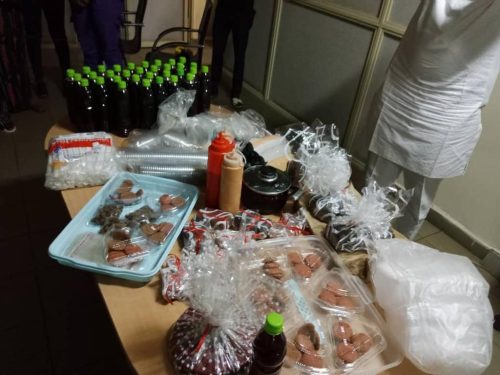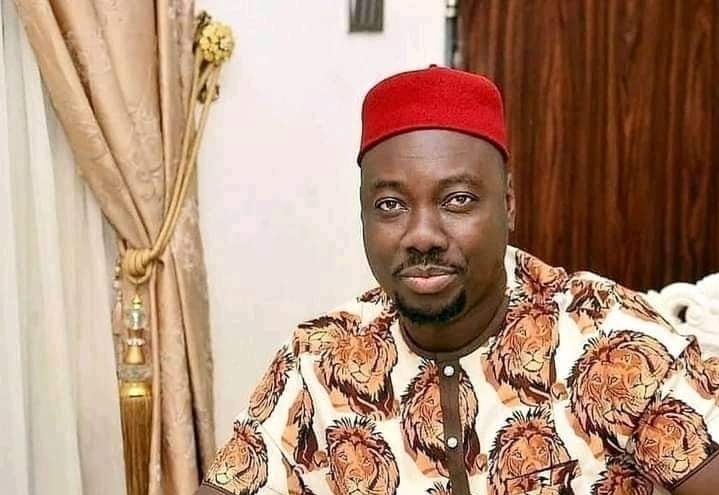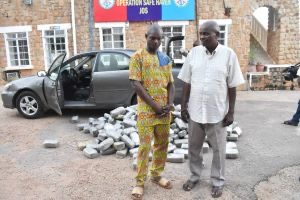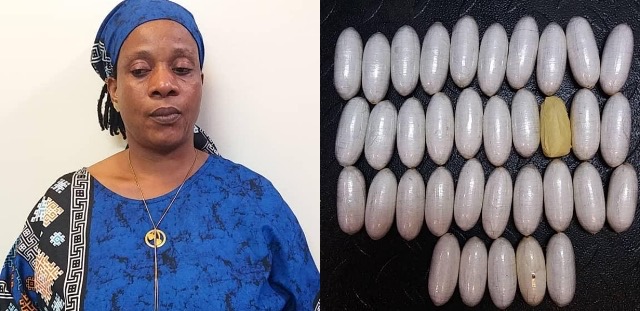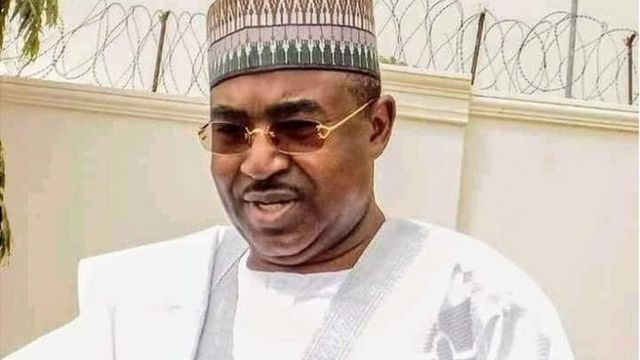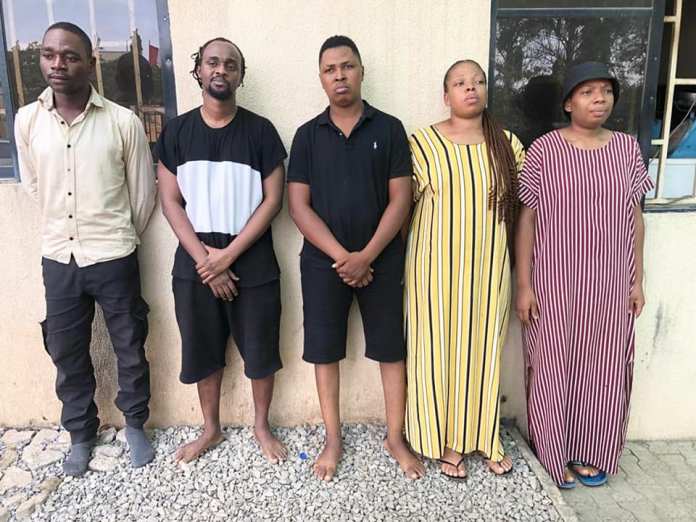Nelson Mandela, the legendary African anti-apartheid fighter, said the future belongs to the youth, but Barak Obama qualified it by saying that the future belongs to young people with education and the imagination to create. None of them could foresee that
drug could ambush the youth and threaten the future. This reality stares us in the face today. The optimism of a bright future led
by the youth of today and leaders of tomorrow is gradually fading away, thanks to the menace of drugs. Unfortunately, it is a national problem linked to all other criminal activities, but we do not consider it critical. A generation of people is gradually being wiped out. The implications of this are too dire even to contemplate.
There are two sides to the drug issue, and both sides complement each other – the supply and demand sides. Drug trafficking and drug abuse/addiction form parts of a vicious circle. One significantly correlates with the other. Where there is a high level of drug abuse, there must always be a correspondingly high level of drug trafficking and vice versa. The psychology and economics of drugs in our society juxtapose synergically with our youths’ crass criminality and wanton debasement. Let us tackle first the issue of drug trafficking.
Regional drug trafficking intersects with many security issues ranging from war and terrorism to human trafficking and national stability. It brings along with it, myriad security issues and challenges, notably an intricate network of actors across various levels of handling narcotics management, which in most instances extend abroad. External manipulation by drug traffickers has resulted in a surge in maritime drug trafficking in Lagos and Nigeria’s coastal regions and is wreaking havoc at the land borders of the North East and North West.
The emergence of new criminal avenues to launder drug money, such as cryptocurrency and money transfer systems, has exacerbated the menace of drug trafficking. Drug transactions seem seamless, and funds from illicit drug deals are laundered and allowed to filter into legitimate business environments.
The heightened insecurity and lack of employment in many States create opportunities for drug traffickers’ relative smooth operations, apart from the occasional seizures. The potential for the drug trade to become a source of violent political competition, instability and, most important, emerge as a parallel power that rivals the established legal system and political hierarchy becomes a frightful possibility.
A cursory look at the media in Nigeria reveals that hardly any month passed in 2021 without any significant cases of vast amounts of drugs seized at the important gateways in Nigeria or a Nigerian caught abroad with a large consignment of drugs being smuggling into another country. These seizures have shed light on how the work of trafficking networks is facilitated by a range of actors, including allegedly businesspeople, politicians, celebrities, and students. Nigeria’s porous borders, weak institutions, corrupt practices , political patronage, poverty, and ethnic identities, enable traffickers to avoid detection by the formal security apparatus. There are even times when the conventional security apparatus itself provides cover for traffickers, giving rise to legitimate concerns about the ability of criminal networks and illicit drug monies to infiltrate security and government agencies, transform or influence the motivations of its members, reorient objectives towards the spoils of drug trafficking activity, thus undermining the democratic processes. Still on the supply side is the new availability of cheap opioids in the open market under different brands names.
The demand side of the drug debacle follows the same trend. Recent data shows that about 14.3m Nigerians abuse drugs , which represents a 14.4 prevalence rate, three times the global prevalence rate of 5%. Of the almost 15m people abusing drugs, 10.6m abuse cannabis Sativa, aka Indian hemp – the rest abuse various other hard drugs. The use of cocaine and heroin is gaining prominence, especially among youths from upper-middle-class or upper class or young and well to do professionals. Most of the poor people who abuse drugs either use Indian hemp or abuse pharmaceutical drugs like tramadol,cough syrups and the famous ‘mkpurumiri’ trending across social media lately. There is the news of foreigners setting up factories in south-east Nigeria for the manufacture of’Mkpurumiri’.
Gen Buba Marwa, Nigeria Drug Law Enforcement Agency Chief , in a different articles admitted that just like the rest of Africa, West African countries have been grappling with the problem of a dearth of credible data on the trend of drug use in the sub-region. However, available data shows that within the first ten months of 2021, about 10,355 people were arrested for drug offences, 3.1m kg of assorted drugs valued at nearly N120b were seized, with about 5579 people counselled and rehabilitated.
This statistics for 2021, although looking like a drop in the ocean compared to the type of statistics we expect to get with an intensified effort from relevant authorities to curb this drugs menace, is still a considerable improvement to the data from 2018 to 2020. All the three years combined are less than the 10months figures for this year alone. This report shows that the curve is bending on drug trafficking and abuse as more effort is made by this administration to improve the situation. I commend this renewed effort and hope it will continue to be sustained by the government.
The escalating drug consumption in the student community, in the streets of major cities, and the growing music and film world is indicative of the ever-increasing tentacles of the drug trade. Across Nigeria, there has been an upsurge in drug consumption fueled by increasing stress and hopelessness among youth . Unemployment, lack of opportunities and descent into anarchy may be forcing youths into all forms of escape. The upsurge has resulted in many Nigerians questioning the effectiveness and resilience of the existing legal and enforcement machinery. This escalation becomes worse closer to the general election period.
The politician-drug nexus is one of the factors responsible for the spread of the menace. It cuts across parties . The reasons vary from desperation in looking for money to fund election, money laundering, facilitation of violence, political patronage to substance abuse by thugs. A trend has been established that as we approach every election cycle, there is always a three- or four-fold jump in substances seized and the number of drug-related arrests spike. The link between drugs and politics is shameful, and every leader in Nigeria must openly work at completely eradicating drug abuse within his area of influence.
Apart from the apparent damage to society drug abuse causes, it has broader implications and far-reaching consequences to all. At the nuclear level is the devastation it causes to families. Most times, parents are the last to know that their children are dependent on hard drugs. It is easier to spot another person’s child than yours
in circumstances like this. Drug abuse is not far from most parents, just that they are not inquisitive enough to find out. Obviously, their children and wards are already ‘junkies’ and wholly hooked on drugs by the time it is obvious. This ordeal has a devastating effect on the family.
One of the main challenges lies in the fact that the predominant approach to drug trafficking in the region has been based on the international narcotics control regime, which focuses on stemming the supply of drugs through law enforcement efforts. Little emphasis has been placed on the health,developmental and spill-over effects of drug use and trafficking, which over time will constitute a more significant security threat to the nation. Health facilities in Nigeria are not geared to deal with the consequences of drug dependency. There is a dearth of specialized units and medical professionals, and rehabilitation centres across the country.
Furthermore, there is widespread concern that transnational organized crime, including illicit weapons and banditry, piracy and armed robbery at sea, kidnapping and terrorism, are increasingly linked with drug trafficking and abuse, pose a direct security threat to peace and stability in the Niger Delta region and main theatres of conflicts in the North East and North West.
A severe threat posed by drug trafficking and abuse is their ability to reshape relational dynamics between and among political and security actors, the citizenry, and the business community within and beyond borders. The infiltration and potential weakening of military, police, customs, and border agencies by criminal organizations can damage national security.
The threat of radicalization and youth recruitment by Boko Haram, ISWAP and terrorist groups is another profound corollary of drug trafficking and abuse. Radicalizers and recruiters target vulnerable youths from higher institutions, villages, and gangs. Mosques are a soft pool that is exploited easily, and fresh recruits, both male and female,are whisked off to join other militants and terrorists operating at the edges of Northern Nigeria or other foreign countries and in warzones.
Another area of concern is that rivalries between different groups involved in the drug trade can lead to violent competition for access to routes, products, and profits.
Cross border security threats with their spill-over effects have impacted negatively on Nigeria’s internal security. The federal government has continued to mitigate these transnational security threats through bilateral and multilateral engagements. In addressing the above threats, the government has made concerted efforts by improving interoperability and synergy in the multi-agency approach. It has deployed counterterrorism and counter-narcotics initiatives which led to the disruption of several high profile planned attacks.
As I pointed out earlier, the government has intensified efforts to tackle the problem of drug abuse and trafficking to stem the slipping slope to ignominy many youths who dabbled into drugs are heading to. However, I will implore that a robust counter drug trafficking and abuse initiative be started immediately. A national strategy that will map out actions at federal, state, and local government levels is needed and must involve security agencies, civil societies, and ordinary citizens.
Moreover, a national media sensitization and mass mobilization against drug abuse and trafficking must be carried out. Parents must be made aware of the dangers of drugs on their children so that they become more vigilant, monitoring online platforms, especially those used by drug peddlers to coordinate drug trafficking activities. Create and implement robust anti-money laundering laws aimed at disrupting the financial flow of drug money. EFCC should use existing financial regulation laws to prosecute known drug dealers actively. Finally, the government must locate, disrupt, and destroy all forms of illicit drug trafficking whilst working hard to establish the infrastructure to tackle drug abuse. The government must confiscate all monetary proceeds of drug trafficking, and drug pushers punished by the law. The time to act is now. NDLEA claims that over 40% of Nigerian youths (between 18 and 35) are deeply involved in drug abuse. This new epidemic may cause more significant harm than the COVID 19 soon.
The prevalence of drug abuse in Nigeria and the negative impact on public health and safety necessitate that all hands be on deck to curtail the challenge. Schools, communities, voluntary organizations, and religious bodies should embark on drug abuse enlightenment, treatment and prevention. There is no better time than now for all relevant stakeholders to rise and join the crusade to make Nigeria a better and safer nation, especially for the youths – the leaders of tomorrow.
